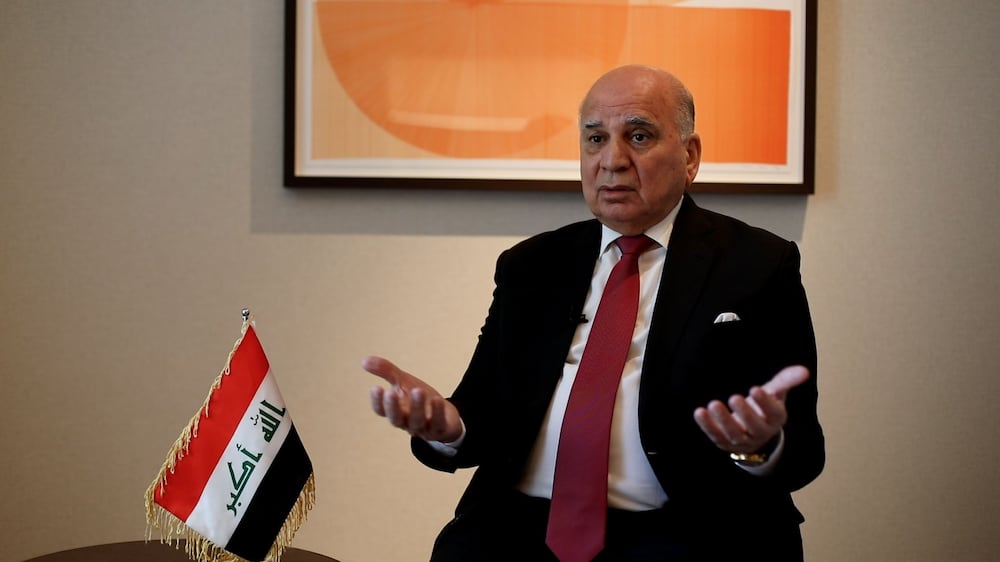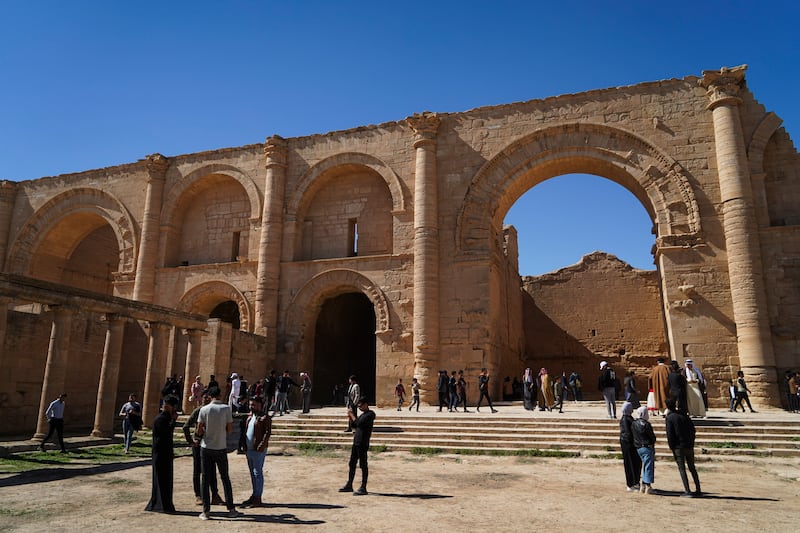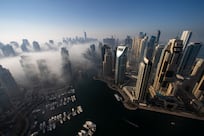Iraq's non-oil economy will continue its growth momentum in 2024, after expanding an estimated 6 per cent in 2023, although risks to the outlook persist, the International Monetary Fund has said.
The country's economy is projected to rebound in 2024 but risks from larger declines in oil prices or extended Opec+ cuts could affect its fiscal and external accounts, the Washington-based fund said on Sunday, at the end of an official staff mission to the country.
If tensions in the Middle East escalate, further disruption to shipping routes or damage to oil infrastructure could lead to production losses that may outweigh the potential positive impact of higher oil prices, it added.
In the medium term, Iraq's non-oil growth is projected to stabilise at about 2.5 per cent, given existing hurdles to private-sector development.
The IMF called for wide-ranging structural reforms to develop the private sector and foster economic diversification.
"Iraq needs higher and more sustainable non-oil growth to absorb the rapidly growing labour force, increase non-oil exports and government revenue, and reduce the economy’s vulnerability to oil price shocks," Jean-Guillaume Poulain, head of the IMF mission, said.
Headline inflation declined from a high of 7.5 per cent in January 2023 to 4 per cent by the year's end, reflecting lower international food and energy prices, and the impact of the February 2023 currency revaluation, the fund said.
The country's current account is expected to have recorded a surplus of 2.6 per cent of GDP.
International reserves increased to $112 billion last year but Iraq's fiscal position still worsened.
Its fiscal balance declined to a deficit of 1.3 per cent in 2023, from a surplus of 10.8 per cent of GDP the previous year. This was due to lower oil revenue and an increase in expenditure by 8 percentage points of GDP, of which salaries and pensions contributed 5 percentage points.
Iraq's vulnerability to declining oil prices has increased as higher spending is projected to push the fiscal break-even price above $90 this year.
Without new policy measures, the fiscal deficit is expected to reach 7.6 per cent this year and widen further, as oil prices are projected to drop gradually in the medium term, the fund said.
As a result, public debt would almost double to 86 per cent by 2029, from 44 per cent last year.
The IMF in January cut its growth forecast for the Mena region as Israel's war in Gaza compounds challenges for exposed economies.
Assuming the war eases after the first quarter of the year, growth in the Mena region is projected to expand 2.9 per cent in 2024, the lender said at the time.
That marks a downwards revision of 0.5 percentage points from the fund’s October 2023 estimates of 3.4 per cent growth for Mena economies, the IMF said.
Tensions have also spilt into the Red Sea, where Yemen's Houthi rebels are attacking ships passing through the main trade route connecting Asia and Europe in retaliation for Israel’s military assault on Gaza. The Houthi strikes in the Red Sea could also disrupt energy supplies from Middle East producers.
Iraq expects an apology from Iran for recent attacks

The IMF urged Iraqi authorities to reduce the economy's dependence on oil, ensuring fiscal sustainability while protecting critical social and investment spending. This will require controlling the public wage bill and increasing non-oil tax revenue.
The fund highlighted a series of key reform priorities.
These include a comprehensive employment strategy aimed at phasing-out mandatory hiring in the public sector, accelerating financial sector reform to improve access to credit and introducing a comprehensive pension reform on an urgent basis.
Also needed are measures for combating corruption, improving governance and removing barriers to the ease of doing business, the fund said.







